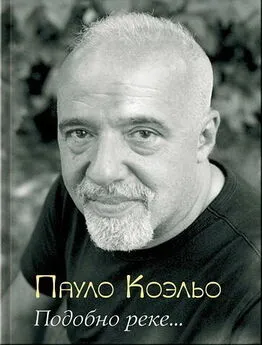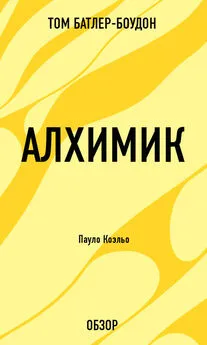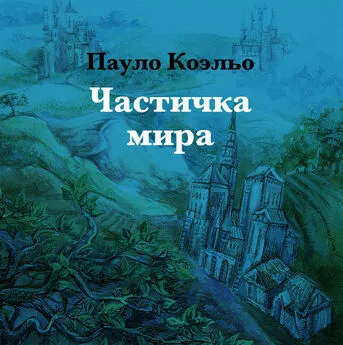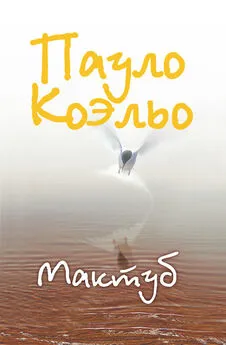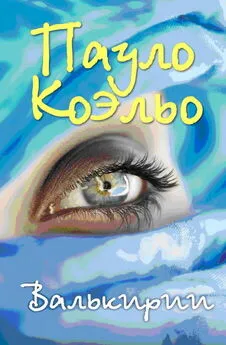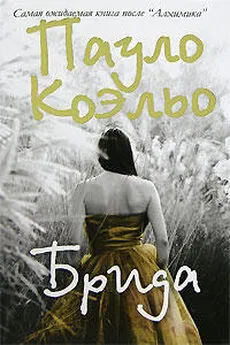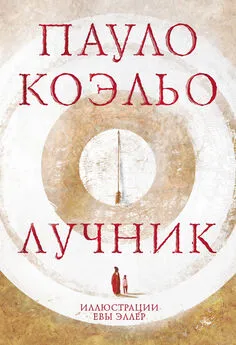Пауло Коэльо - The Alchemist
- Название:The Alchemist
- Автор:
- Жанр:
- Издательство:неизвестно
- Год:неизвестен
- ISBN:нет данных
- Рейтинг:
- Избранное:Добавить в избранное
-
Отзывы:
-
Ваша оценка:
Пауло Коэльо - The Alchemist краткое содержание
The Alchemist - читать онлайн бесплатно полную версию (весь текст целиком)
Интервал:
Закладка:
"Not at all. It was shepherds who were the first to recognize a king that the rest of the world refused to acknowledge. So, it's not surprising that kings would talk to shepherds."
And he went on, fearing that the boy wouldn't understand what he was talking about, "It's in the Bible. The same book that taught me about Urim and Thummim. These stones were the only form of divination permitted by God. The priests carried them in a golden breastplate."
The boy was suddenly happy to be there at the warehouse.
"Maybe this is an omen," said the Englishman, half aloud.
"Who told you about omens?" The boy's interest was increasing by the moment.
"Everything in life is an omen," said the Englishman, now closing the journal he was reading. "There is a universal language, understood by everybody, but already forgotten. I am in search of that universal language, among other things. That's why I'm here. I have to find a man who knows that universal language. An alchemist."
The conversation was interrupted by the warehouse boss.
"You're in luck, you two," the fat Arab said. "There's a caravan leaving today for Al-Fayoum."
"But I'm going to Egypt," the boy said.
"Al-Fayoum is in Egypt," said the Arab. "What kind of Arab are you?"
"That's a good luck omen," the Englishman said, after the fat Arab had gone out. "If I could, I'd write a huge encyclopedia just about the words luck and coincidence. It's with those words that the universal language is written.''
He told the boy it was no coincidence that he had met him with Urim and Thummim in his hand. And he asked the boy if he, too, were in search of the alchemist.
"I'm looking for a treasure," said the boy, and he immediately regretted having said it. But the Englishman appeared not to attach any importance to it.
"In a way, so am I," he said.
"I don't even know what alchemy is," the boy was saying, when the warehouse boss called to them to come outside.
*
"I'm the leader of the caravan," said a dark-eyed, bearded man. "I hold the power of life and death for every person I take with me. The desert is a capricious lady, and sometimes she drives men crazy."
There were almost two hundred people gathered there, and four hundred animals—camels, horses, mules, and fowl. In the crowd were women, children, and a number of men with swords at their belts and rifles slung on their shoulders. The Englishman had several suitcases filled with books. There was a babble of noise, and the leader had to repeat himself several times for everyone to understand what he was saying.
"There are a lot of different people here, and each has his own God. But the only God I serve is Allah, and in his name I swear that I will do everything possible once again to win out over the desert. But I want each and every one of you to swear by the God you believe in that you will follow my orders no matter what. In the desert, disobedience means death."
There was a murmur from the crowd. Each was swearing quietly to his or her own God. The boy swore to Jesus Christ. The Englishman said nothing. And the murmur lasted longer than a simple vow would have. The people were also praying to heaven for protection.
A long note was sounded on a bugle, and everyone mounted up. The boy and the Englishman had bought camels, and climbed uncertainly onto their backs. The boy felt sorry for the Englishman's camel, loaded down as he was with the cases of books.
"There's no such thing as coincidence," said the Englishman, picking up the conversation where it had been interrupted in the warehouse. "I'm here because a friend of mine heard of an Arab who…"
But the caravan began to move, and it was impossible to hear what the Englishman was saying. The boy knew what he was about to describe, though: the mysterious chain that links one thing to another, the same chain that had caused him to become a shepherd, that had caused his recurring dream, that had brought him to a city near Africa, to find a king, and to be robbed in order to meet a crystal merchant, and…
The closer one gets to realizing his destiny, the more that destiny becomes his true reason for being, thought the boy.
The caravan moved toward the east. It traveled during the morning, halted when the sun was at its strongest, and resumed late in the afternoon. The boy spoke very little with the Englishman, who spent most of his time with his books.
The boy observed in silence the progress of the animals and people across the desert. Now everything was quite different from how it was that day they had set out: then, there had been confusion and shouting, the cries of children and the whinnying of animals, all mixed with the nervous orders of the guides and the merchants.
But, in the desert, there was only the sound of the eternal wind, and of the hoofbeats of the animals. Even the guides spoke very little to one another.
"I've crossed these sands many times," said one of the camel drivers one night. "But the desert is so huge, and the horizons so distant, that they make a person feel small, and as if he should remain silent."
The boy understood intuitively what he meant, even without ever having set foot in the desert before. Whenever he saw the sea, or a fire, he fell silent, impressed by their elemental force.
I've learned things from the sheep, and I've learned things from crystal, he thought. I can learn something from the desert, too. It seems old and wise.
The wind never stopped, and the boy remembered the day he had sat at the fort in Tarifa with this same wind blowing in his face. It reminded him of the wool from his sheep… his sheep who were now seeking food and water in the fields of Andalusia, as they always had.
"They're not my sheep anymore," he said to himself, without nostalgia. "They must be used to their new shepherd, and have probably already forgotten me. That's good. Creatures like the sheep, that are used to traveling, know about moving on."
He thought of the merchant's daughter, and was sure that she had probably married. Perhaps to a baker, or to another shepherd who could read and could tell her exciting stories—after all, he probably wasn't the only one. But he was excited at his intuitive understanding of the camel driver's comment: maybe he was also learning the universal language that deals with the past and the present of all people. "Hunches," his mother used to call them. The boy was beginning to understand that intuition is really a sudden immersion of the soul into the universal current of life, where the histories of all people are connected, and we are able to know everything, because it's all written there.
"Maktub," the boy said, remembering the crystal merchant.
The desert was all sand in some stretches, and rocky in others. When the caravan was blocked by a boulder, it had to go around it; if there was a large rocky area, they had to make a major detour. If the sand was too fine for the animals' hooves, they sought a way where the sand was more substantial. In some places, the ground was covered with the salt of dried-up lakes. The animals balked at such places, and the camel drivers were forced to dismount and unburden their charges. The drivers carried the freight themselves over such treacherous footing, and then reloaded the camels. If a guide were to fall ill or die, the camel drivers would draw lots and appoint a new one.
But all this happened for one basic reason: no matter how many detours and adjustments it made, the caravan moved toward the same compass point. Once obstacles were overcome, it returned to its course, sighting on a star that indicated the location of the oasis. When the people saw that star shining in the morning sky, they knew they were on the right course toward water, palm trees, shelter, and other people. It was only the Englishman who was unaware of all this; he was, for the most part, immersed in reading his books.
The boy, too, had his book, and he had tried to read it during the first few days of the journey. But he found it much more interesting to observe the caravan and listen to the wind. As soon as he had learned to know his camel better, and to establish a relationship with him, he threw the book away. Although the boy had developed a superstition that each time he opened the book he would learn something important, he decided it was an unnecessary burden.
He became friendly with the camel driver who traveled alongside him. At night, as they sat around the fire, the boy related to the driver his adventures as a shepherd.
During one of these conversations, the driver told of his own life.
"I used to live near El Cairum," he said. "I had my orchard, my children, and a life that would change not at all until I died. One year, when the crop was the best ever, we all went to Mecca, and I satisfied the only unmet obligation in my life. I could die happily, and that made me feel good.
"One day, the earth began to tremble, and the Nile overflowed its banks. It was something that I thought could happen only to others, never to me. My neighbors feared they would lose all their olive trees in the flood, and my wife was afraid that we would lose our children. I thought that everything I owned would be destroyed.
"The land was ruined, and I had to find some other way to earn a living. So now I'm a camel driver. But that disaster taught me to understand the word of Allah: people need not fear the unknown if they are capable of achieving what they need and want.
"We are afraid of losing what we have, whether it's our life or our possessions and property. But this fear evaporates when we understand that our life stories and the history of the world were written by the same hand."
Sometimes, their caravan met with another. One always had something that the other needed—as if everything were indeed written by one hand. As they sat around the fire, the camel drivers exchanged information about windstorms, and told stories about the desert.
At other times, mysterious, hooded men would appear; they were Bedouins who did surveillance along the caravan route. They provided warnings about thieves and barbarian tribes. They came in silence and departed the same way, dressed in black garments that showed only their eyes. One night, a camel driver came to the fire where the Englishman and the boy were sitting. "There are rumors of tribal wars," he told them.
The three fell silent. The boy noted that there was a sense of fear in the air, even though no one said anything. Once again he was experiencing the language without words… the universal language.
The Englishman asked if they were in danger.
"Once you get into the desert, there's no going back," said the camel driver. "And, when you can't go back, you have to worry only about the best way of moving forward. The rest is up to Allah, including the danger."
And he concluded by saying the mysterious word: "Maktub."
"You should pay more attention to the caravan," the boy said to the Englishman, after the camel driver had left. "We make a lot of detours, but we're always heading for the same destination."
"And you ought to read more about the world," answered the Englishman. "Books are like caravans in that respect."
The immense collection of people and animals began to travel faster. The days had always been silent, but now, even the nights—when the travelers were accustomed to talking around the fires—had also become quiet. And, one day, the leader of the caravan made the decision that the fires should no longer be lighted, so as not to attract attention to the caravan.
The travelers adopted the practice of arranging the animals in a circle at night, sleeping together in the center as protection against the nocturnal cold. And the leader posted armed sentinels at the fringes of the group.
Читать дальшеИнтервал:
Закладка:


